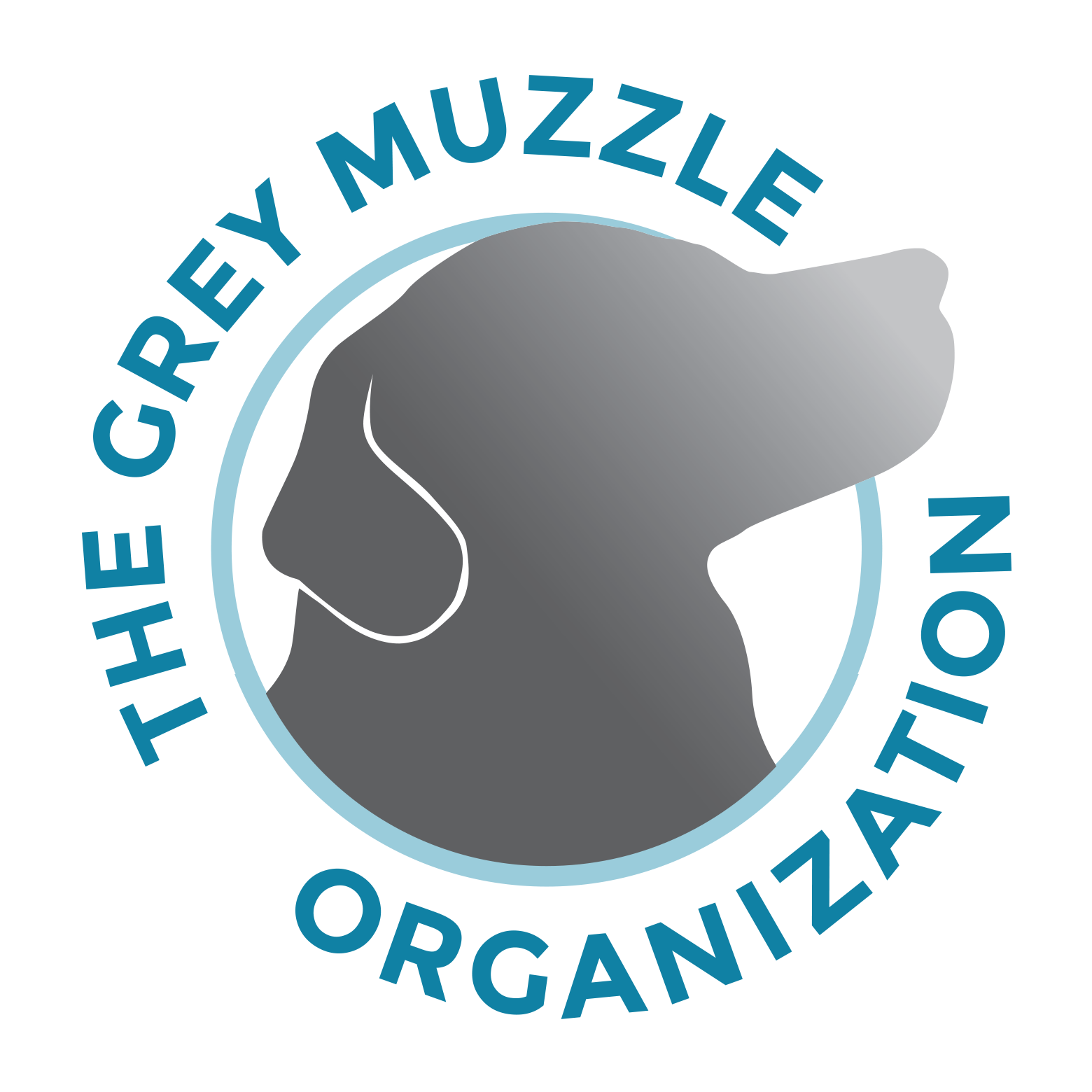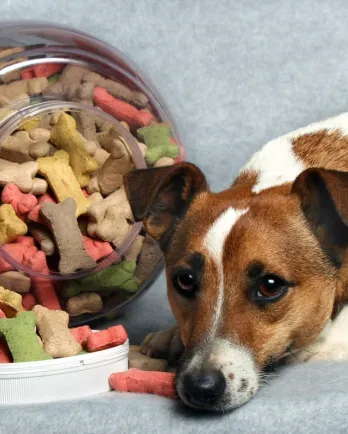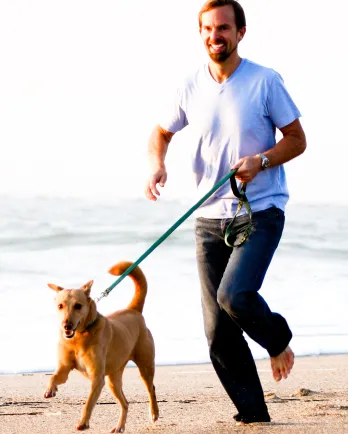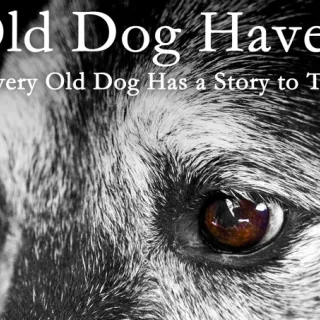Finding Health Solutions for Our "Chow Hounds": An Interview with Dr. Ernie Ward, DVM
Dr. Ernie Ward, DVM has dedicated his veterinary career to not only treating illness in animals but also preventing disease and optimizing health. In addition to being a veterinary practitioner, he is an internationally-recognized writer, award-winning lecturer, and a television personality, who has been the recurring "house vet" for the Rachael Ray show since 2007. He is founder of the Association for Pet Obesity Prevention, and shares his research into canine nutrition and the epidemic of pet obesity in his book Chow Hounds: Why Our Dogs Are Getting Fatter—A Vet's Plan to Save Their Lives. Dr. Ward, a member of Grey Muzzle's Advisory Board, was also instrumental in bringing senior pet care guidelines to general veterinary practices, and a founder of the International Veterinary Senior Care Society (IVSCS).
An estimated 54% of American pets are obese, and the risks of added weight only increase as a dog ages. Dr. Ward graciously answered our questions about his research into this problem and about its impact on the particular health concerns of senior dogs:
How did you become interested in pet obesity and nutrition?
About 20 years ago, I began noticing my pet patients were gaining weight year after year. I’d see a dog or cat and the next year they were several pounds heavier. At the same time, I was very involved in ultra endurance athletics such as the Ironman triathlon and human fitness and longevity. I started asking a simple question, “Why are our pets getting fatter?” I began to focus on nutrition, exercise, and longevity in animals. I quickly realized the most effective way to prevent disease and increase life expectancy was through maintaining a lean body mass and engaging in healthy nutritional habits.
In your book Chow Hounds, you discuss the growing problem of pet obesity. What do you think are the main reasons for the obesity epidemic?
The reasons our pets are too heavy are the same reasons our human children are: access to excessive amounts of calories and inadequate physical activity. I take particular aim at the tremendous quantities of high-calorie treats we give our pets each day. In our experience and surveys, the biggest mistake pet owners make occurs in between meal times in the form of snacks. Maybe it’s a pizza crust, a cookie, some chips, a commercial treat, and now we’re seeing canned ‘appetizers’ and ‘rewards’ for cats and dogs. If I had a magic wand, I’d eliminate all of the junk food treats that are silently sabotaging our pet’s health.
Often we fail to notice that our dogs are becoming obese, especially if they gain weight slowly as they age. At what point should dog owners become concerned about their dog’s weight?
An ‘extra pound’ is an extra pound of potentially harmful fat. We've learned over the past 30 years that fat is an incredibly active tissue pumping out scores of harmful hormones and disease-causing chemicals. The goal is to keep your dog at a lean, healthy weight. An extra pound on a cat is even more dangerous; cats are especially susceptible to developing type 2 diabetes.
What are the risks of being overweight for dogs, older dogs in particular?
Weight-related disorders in dogs include osteoarthritis, insulin resistance and type 2 diabetes, high blood pressure, breathing problems, and many forms of cancer. There are other conditions such as kidney disease, skin disease, and heart disease that are being studied to better understand the link between excess fat and the occurrence of these disorders.
The relationship between obesity and cancer is the most worrisome and the evidence is mounting that many cancers are the result of the hormones and chemicals produced by fat tissue. While that’s frightening, the easy solution is to simply prevent obesity from occurring in the first place. That begins at the food bowl.
Many of us dog owners use food to entertain and connect with our dogs, especially during the holidays. Do you have any advice for how we can break this habit or turn it into something positive for the health of our dogs?
Sharing celebrations and food with our pets is part of the wonderfully unique bond we share. We need to make sure we’re sharing healthy, wholesome, and nutritious foods. Raw vegetables, lean meats, and oily fishes are excellent treats for special occasions. Avoid fatty, sugary, and starchy foods such as breads and desserts.
Another huge mistake pet owners mistake is providing food rewards for adult pets. Your 10-year-old Maltese no longer requires a goodie each time it potties. It also doesn’t need a cookie as you leave the house and immediately upon your return. Our pets crave our attention and interaction, not our confections.
Each time you catch yourself reaching for a treat, replace it with a petting. Go for a walk. Play for a few minutes. Those tiny connection opportunities will do more to improve your pet’s health than almost any drug I can prescribe.
How have you kept your own canine family members fit and trim?
I keep all of my dogs and cats (and myself!) lean and trim by: 1) knowing how many calories and how much food they need each day, 2) precisely measuring their meals and adjusting for any real, whole foods we supplement their diet, 3) daily walks and runs and plenty of playtime, and 4) routine blood and urine tests to make minor adjustments to their diet and lifestyle.
What are the most effective things that we can do to manage the weight of older dogs that are not as active as they once were?
There’s no magic food bowl when it comes to preventing obesity. It begins with understanding that the most important health decision a pet owner makes each day is what they feed their dog or cat. The first step is to talk with your veterinarian and develop a nutritional plan appropriate for your pet and lifestyle. This includes determining if supplements such as DHA/EPA (fish oils), glucosamine and others could be beneficial. Next strive to keep your pet lean and strong through diet and exercise. Third, engage in daily physical activity such as walking for 30 minutes, swimming, or playing in a park. Physical activity helps keep the body and mind sharp and strong. Finally, every dog over age 7 should have basic blood and urine tests performed each year to uncover emerging disease to allow early intervention.
My heart is broken dozens of times each year simply because a pet owner brought a pet to me too late to treat.
You can read more about Dr. Ernie Ward and all of our wonderful Advisory Board members on our Who We Are page.
The information presented by The Grey Muzzle Organization is for informational purposes only. Readers are urged to consult with a licensed veterinarian for issues relating to their own pet's health or well-being or prior to implementing any treatment.
The Grey Muzzle Organization improves the lives of at-risk senior dogs by providing funding and resources to animal shelters, rescue organizations, sanctuaries, and other nonprofit groups nationwide.




